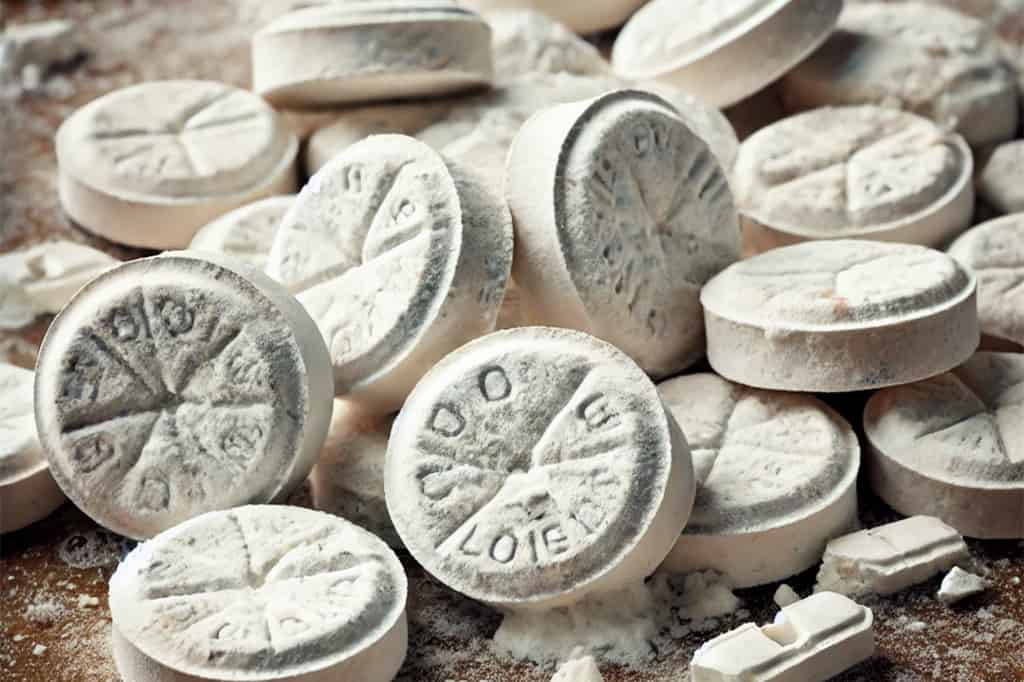Chlorine tablets are a staple for pool owners, ensuring that the water remains clean, clear, and safe for swimming. However, these essential pool maintenance tools can sometimes become moisture-damaged, leading to questions about their usability and effectiveness. In this blog, we will discuss whether moisture-damaged chlorine tablets can still be used, why they become compromised, how to treat them, and how to prevent this issue in the future.

Can Moisture-Damaged Chlorine Tablets Still Be Used?
One of the first questions pool owners have when they discover moisture-damaged chlorine tablets is whether these compromised tablets are still effective. The answer largely depends on the extent of the damage.
Moisture-damaged chlorine tablets may still release chlorine into the water, but their effectiveness can be significantly reduced. The primary risk is that they may not dissolve properly, leading to uneven chlorine distribution in your pool. This can result in areas of the pool that are over-chlorinated and others that are under-chlorinated, which is not ideal for maintaining a balanced and safe swimming environment.
Moreover, using compromised chlorine tablets can lead to inconsistent pool maintenance, making it harder to keep the water clear and free of harmful bacteria. To ensure the best results, it is recommended to consult with a professional or the customer service of a chlorine tablets factory. They can provide specific guidance based on the condition of your tablets.
Why Do Chlorine Tablets Become Moisture-Damaged?
Understanding why chlorine tablets become moisture-damaged is crucial for preventing future occurrences. Here are some common causes:
1. Improper Storage Conditions:
Chlorine tablets need to be stored in a cool, dry place. Exposure to high humidity or direct contact with water can cause them to absorb moisture and deteriorate.
2. Packaging Issues:
Sometimes, the packaging of chlorine tablets is not airtight, allowing moisture to seep in. This is a common issue when the seal of the container is broken or if the tablets are transferred to another container that isn’t properly sealed.
3. Environmental Factors:
The storage area itself can contribute to moisture damage. Basements, outdoor sheds, or other areas with fluctuating temperatures and humidity levels can create an environment that leads to moisture absorption.
Insights from a chlorine tablets factory suggest that many storage mistakes stem from a lack of awareness about the sensitivity of chlorine tablets to moisture. Knowing the right conditions for storage can prevent many problems.
How to Treat Moisture-Damaged Chlorine Tablets
If you discover that your chlorine tablets have been compromised by moisture, there are a few steps you can take to salvage them or, if necessary, dispose of them safely.
Assess the Damage
First, determine the extent of the damage. Inspect the tablets for signs of crumbling, discoloration, or excessive softening. If the tablets are only slightly damp but still intact, they might still be usable with some careful handling.
Drying the Tablets
For slightly moisture-damaged tablets:
- Use Desiccants:Place the tablets in an airtight container with a desiccant packet to absorb moisture. Silica gel packets are commonly used for this purpose.
- Air Drying:Spread the tablets out in a dry area with good air circulation. Ensure they are not exposed to direct sunlight or heat, which could cause them to deteriorate further.
- Gentle Heat:In some cases, using a low-heat source like a dehumidifier can help dry out the tablets. Be cautious not to apply direct heat, as this can cause the tablets to degrade.
Safe Disposal
If the tablets are severely damaged and cannot be salvaged:
- Contact Local Authorities:Dispose of chlorine tablets according to local hazardous waste disposal regulations.
- Do Not Flush: Never flush chlorine tablets down the toilet or throw them in the regular trash, as they can cause chemical reactions and environmental harm.
How to Prevent Chlorine Tablets from Becoming Moisture-Damaged
Preventing moisture damage is easier than dealing with its consequences. Here are some best practices for storing your chlorine tablets:
Optimal Storage Conditions
- Cool and Dry Place: Store chlorine tablets in a cool, dry place away from direct sunlight and moisture sources. An indoor storage area like a garage or a dedicated storage room works well.
- Airtight Containers: Always keep chlorine tablets in their original, tightly sealed containers. If you need to transfer them, use an airtight container that can protect against moisture.
Regular Inspection
- Check Seals:Regularly inspect the seals on your chlorine tablet containers. Ensure that the lids are tightly closed and that there are no cracks or openings where moisture can enter.
- Monitor Storage Area:Keep an eye on the storage conditions. If you notice any signs of dampness or high humidity, take steps to control the environment, such as using a dehumidifier.
Quality Assurance
- Purchase from Reputable Sources: Buy your chlorine tablets from a reliable chlorine tablets factoryor a trusted retailer. High-quality tablets are less likely to be compromised by moisture due to superior packaging and manufacturing standards.
- Small Quantities: If you have a small pool or do not use chlorine tablets frequently, purchase smaller quantities to ensure they are used up before they can become moisture-damaged.
Conclusion
Chlorine tablets are vital for maintaining the hygiene and safety of your pool. However, moisture damage can compromise their effectiveness and lead to inconsistent pool maintenance. By understanding why chlorine tablets become moisture-damaged and how to treat and prevent this issue, you can ensure that your pool remains in optimal condition.
Remember to store your chlorine tablets properly, regularly inspect them for signs of moisture damage, and consult with a chlorine tablets factory if you have any concerns. By following these guidelines, you can enjoy a clean, safe, and well-maintained pool all season long.




